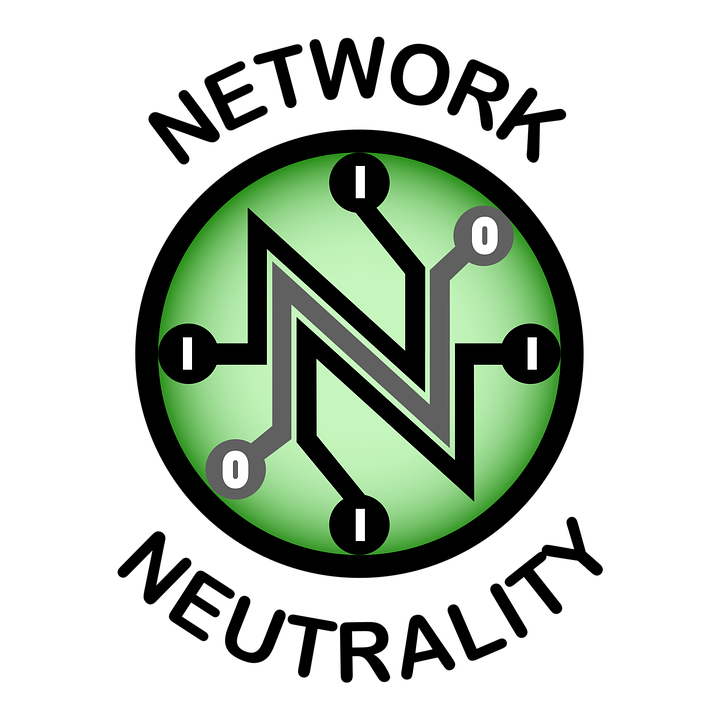Why Net Neutrality is Crucial for a Free Internet
The elimination of net neutrality was just passed. ISPs could charge consumers extra fees for access to certain content and faster speeds
Dec 19, 2017
The permanent reversal of net neutrality would bring an end to equal and open Internet access and put education, small businesses, minority communities, and our freedom of speech at risk. Net neutrality under Title II of the Communications Act rules that all Internet traffic must be treated equally and certain content can’t be favored or blocked by Internet service providers (ISPs).
Repealing net neutrality rules would give big ISPs such as Comcast or AT&T the legal power to speed up, slow down, or even block certain websites, content, or applications of their choosing, as long as they are transparent about their decisions. This means ISPs could charge extra fees to content companies for priority treatment while smaller businesses would be left in the dust. They could even charge consumers extra fees for access to certain content and faster speeds.
The net neutrality rules were originally put into place by the FCC back in 2015 under the Obama administration and have been essential for maintaining open and equal Internet access.
The fate of those net neutrality rules was decided by the Federal Communications Committee (FCC), which took a vote early Thursday morning. Despite national public outcry and protests, both online and in person, FCC chairman Ajit Pai was determined to go ahead with the reversal along with the support of Republican FCC commissioners Michael O’Rielly and Brendan Carr.
The other two commissioners of the five-person committee are Democrats Jessica Rosenworcel and Mignon Clyburn, who were opposed to Pai’s reversal plan. The final vote was totaled at 3-2, with all commissioners voting along party lines and the current net neutrality rules being repealed.
All commissioners, especially Democrats Rosenworcel and Clyburn, had strong statements to make about the topic.
“[Broadband companies] have the technical ability and business incentive to discriminate and manipulate your Internet traffic. And now this agency gives them the legal green light to go ahead and do so,” Commissioner Rosenworcel said.
In addition, New York Attorney General Eric Schneiderman has announced he will sue the FCC over the repeal of net neutrality and will be joined by the attorney generals of Washington, Illinois, Kentucky, Pennsylvania, Delaware, Oregon, Vermont, the District of Columbia, Massachusetts, and possibly several other states. One reason for the lawsuit is a scandal during the FCC’s public comment period for net neutrality, in which at least two million of the approximately 24 million comments on the issue were made using stolen names and identities.
“Today’s vote also follows a public comment process that was deeply corrupted,” Schneiderman said.
And if all else fails, many state legislators have already vowed to pass state-level net neutrality laws, including Senator Scott Wiener (D) from California.
But the fight will be worth it. Open Internet access is extremely important, especially in the modern classroom. Repealing net neutrality could put schools and education at risk and hurt the online resources teachers use daily in their classrooms. Internet is especially important here at Sage Creek. Our math classrooms are full of iPads, our English rooms are full of Chromebooks, and even homework is on Google Classroom or School Loop. Internet access both at school and at home is an extremely important part of our work, collaboration, communication and learning here at Sage Creek and at all schools.
Restricted Internet access, slower speeds, or higher prices caused by the repeal could affect not only Sage Creek, but schools and college campuses around the country.
Recently, open Internet access has been an important tool for activists and minority communities to organize, find resources, communicate, and make their voices heard.
“Particularly damning is what today’s repeal will mean for marginalized groups, like communities of color, that rely on platforms like the Internet to communicate…It was through social media that the world first heard about Ferguson, Missouri, because legacy news outlets did not consider it important until the hashtag started trending,” Commissioner Clyburn said.
Higher prices or the discrimination of content on the Internet by ISPs could hurt our freedom of speech and silence many of these voices.
You can stay educated and follow the news on net neutrality, you can join protests either by going in person or posting about your opinions online, or you can tweet, write letters and call your representatives to tell them why net neutrality is important to you.
The future of the Internet is uncertain, and as Commissioner Mignon Clyburn’s said, “I don’t know whether this plan will be vacated by a court, reversed by Congress, or overturned by a future commission. But I do believe that its days are numbered.”
Regardless, we have a long battle ahead of us.







Guilherme Coelho ◊ Dec 20, 2017 at 9:19 am
I agree with repealing net neutrality 🙂
Donald ◊ Dec 20, 2017 at 3:22 pm
Why?
Donald ◊ Dec 19, 2017 at 7:34 pm
I agree with the fact that Net Neutrality is beneficial for this country.
Donald ◊ Dec 19, 2017 at 7:36 pm
I don’t get why Republicans want to repeal this, after all, if it ain’t broken, don’t fix it. There was nothing wrong with the Internet since 2015, don’t try to mess with things that are already fine.
Ethan ◊ Dec 19, 2017 at 1:26 pm
This is a very important cause. Those who think, “what’s the importance?,” don’t know the effects this will have. To avoid going on a rant, I’ll just summarize what the internet companies can and will do to the people: you’ll have to pay way money for specific services (like pay money to get access to social media or buy access to youtube) that will become lower quality than the internet in 2003.